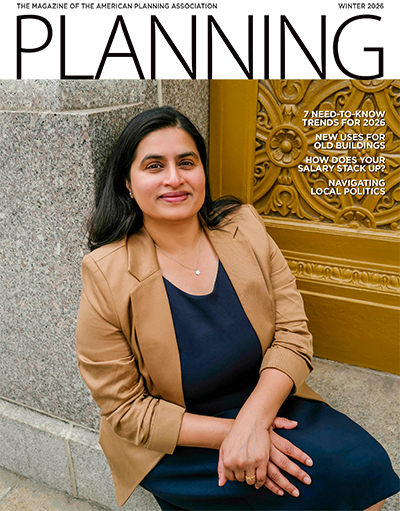Oct. 5, 2023
The nation's pickleball craze and the closing of big retail stores have combined to breathe new life into hollowed-out shopping malls across the country.
Start-ups like Pickleball America in Stamford, Connecticut, and Dallas-based Picklemall Inc., are racing to take advantage of pickleball mania by reusing mall space to build dozens of indoor courts in the carcasses of retail stores that closed up shop during the COVID-19 pandemic.
Pickleball America has leased 80,000 square feet in a former Saks OFF 5th department store for 27 courts at the Stamford Town Center, while Picklemall built 24 courts in 104,000 square feet of space in a former At Home furniture store at Arizona Mills mall in Tempe, Arizona. The facility opened in August with the first 16 courts.
The Stamford mall was already experimenting with an indoor soccer zone, a comedy club and ballet school to compensate for the loss of dozens of retailers. Pickleball, a social sport with elements of tennis, badminton, and ping-pong that people can learn in about 30 minutes, fits right in.
"The mall was a much better fit all around, from the central location to the ownership and partnership, and the enthusiasm to bring us in," says Mia Schipani, chief marketing director of Pickleball America, which also looked at vacant Class A office buildings and strip shopping centers. "They immediately saw the value in what we would bring in terms of foot traffic and the repurposing of the space."
Dan Stolzenbach, the Stamford mall's general manager, expects the courts will "drive additional traffic to the mall, particularly as players realize they can play almost any time of day and without the interruptions from Mother Nature." The pickleball club will be open from 6 a.m. to 11 p.m. daily and support about 1,000 memberships, according to Schipani.
A novel adaptive reuse
Pickleball participation is soaring. In 2022, 8.9 million people in the U.S. played pickleball at least once — an 86 percent increase from the previous year, according to Sports & Fitness Industry Association.

In Lake St. Louis, Missouri, Paddle Up Pickleball moved into a former Bed, Bath & Beyond site. Unobstructed views, 18-foot ceilings, and concrete floors make retail stores ideal for pickleball courts. Photo courtesy of Paddle Up Pickleball Club.
The growth of pickleball has entrepreneurs scrambling to meet demand for court space — and they are finding it in shuttered stores. A vacant Bed, Bath & Beyond in the Meadows shopping mall outside St. Louis reopened in June as the Paddle Up Pickleball Club, offering nine indoor courts and a concession stand.
Putting a pickleball club inside a closed retail store creates opportunities for mall operators, while also meeting the demand for places to play a paddle sport that offers physical, social, and cognitive benefits.
Unobstructed views, 18-foot-high ceilings, and concrete floors make retail stores ideal for pickleball courts. It can cost as little as $10,000 to set up a court in a small store, says Wes Cosgriff, CEO of Ground Rule, a firm that helps companies find and revamp retail space for sports courts.
In a large department store with dozens of courts, developers may need to add lighting, upgrade HVAC systems, and install locker rooms. They may also need to add sound mitigation solutions.
"Everyone is so passionate about pickleball, but you're going to be hearing from people who aren't so passionate about it," Cosgriff says. Not everyone loves the sound of paddles constantly hitting the plastic pickleballs.
Planners should confirm that pickleball court operators have studied potential sound problems and that they plan to take steps to limit the noise, such as installing sport-approved 10-foot-high sound-dampening curtains or using quieter Green Zone paddles.
Economic development wins
Involving individuals from the municipality's economic development department is also key, Cosgriff says, because they understand the economic impact that adaptive reuse for an indoor sports facility can have at a shopping mall.

More than just courts, the Pickleball America plan for a mall in Stamford, Connecticut, includes a café and lounge facilities in a former Saks Off Fifth retail space. Rendering courtesy of Pickleball America.
In Stamford, repurposing the retail space with pickleball fits in with the shopping mall's revitalization strategy, which includes adding more sports and entertainment choices for retail shoppers, Stolzenbach says.
"We envision a central meeting place where people can shop, dine, be entertained, and enjoy games together," he says.
The lion's share of indoor pickleball growth is in the Northeast and Upper Midwest, where demand for year-round court time is high. But the trend has caught on in the South, too, as extreme heat forces the game indoors.
"It's widespread and it's only increasing," Cosgriff says. "And it's not just retail. We're seeing repurposing in flex space, warehouses, office space, and some industrial space."
Picklemall CEO West Shaw plans to open 50 more locations across the country in the next two years. Schipani told Planning magazine her company will focus on other large cities in the Northeast before expanding nationally.
Pickleball is growing "at a pace that cannot be sustained without more facilities coming online," Cosgriff says. "Add to that the number of retail store closures that have been happening and it creates an opportunity and challenge for these malls and landlords and an opportunity for pickleball to fit in."




